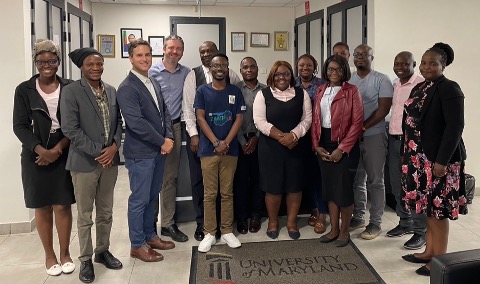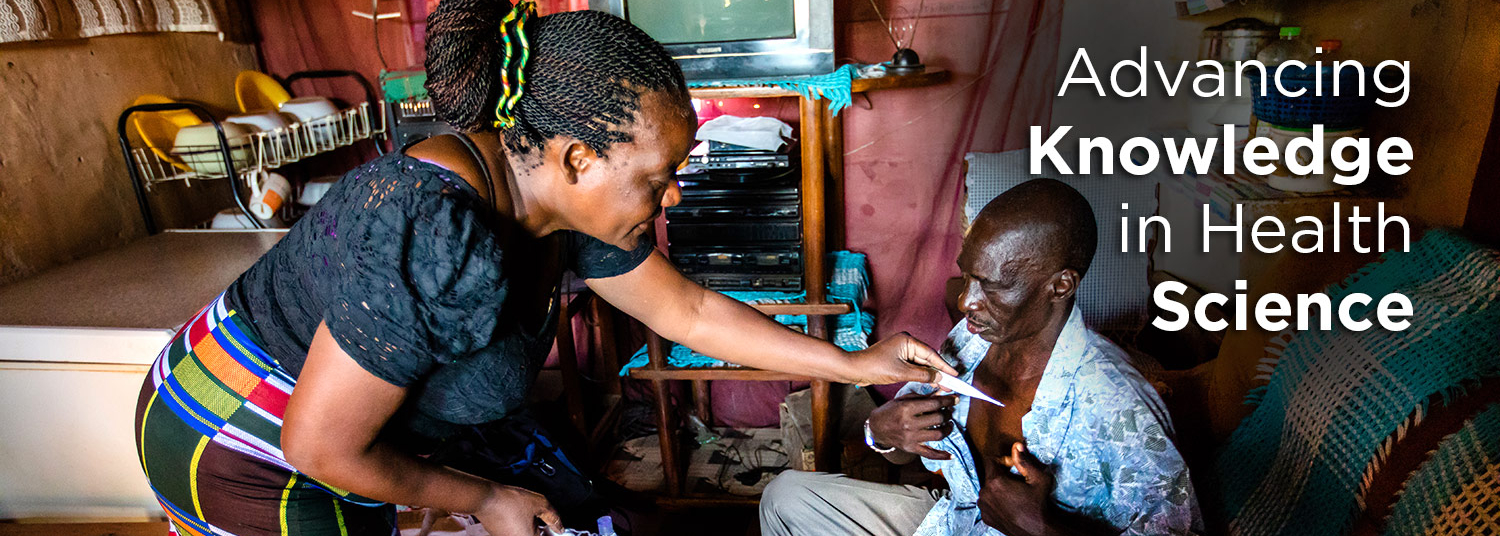ReCharge at IAS Conference 2024
October 25, 2024 | Caitlin Baumhart

Addressing Post-Hospital Mortality in HIV Patients: The ReCharge Study
At the 25th International AIDS Society (IAS) Conference held in Munich, Germany, from July 22-26, 2024, Dr. Cassidy Claassen of the University of Maryland School of Medicine presented compelling findings from the Re-engagement at Discharge (ReCharge) study. This novel research aims to tackle the persistently high post-discharge mortality rates among people living with HIV in Zambia.
The Challenge
Despite significant progress in HIV treatment and care, hospitalization remains common among persons living with HIV in Zambia, especially those with advanced HIV disease. Many hospitalizations in people with HIV can be traced back to lapses in care, either late diagnosis or not being retained long-term in treatment.
Zambia continues to face substantial challenges with the current HIV prevalence among adult aged 15 and older at 11%. In 2022, there were approximately 17,000 deaths among adults living with HIV. Alarmingly, 76% of deaths among people living with HIV are preceded by healthcare interactions, often hospitalizations. And, for patients who are hospitalized, mortality is high. And for those who are hospitalized and discharged, 22% pass away within 90 days of discharge. Among survivors, 26% being readmitted to the hospital within 90 days.
The ReCharge Intervention
To combat these high rates of mortality, the ReCharge study introduced a novel approach: community health worker (CHW) home visits following hospital discharge. Key elements of the intervention included:
-
- A dedicated team of clinical liaison officers and community health workers conducting home visits and follow-up phone calls with clients for three months after hospital discharge, starting within 1 week of discharge.
-
- Clients were given a new, customized discharge card to improve care continuity.
An emphasis on linking patients to community-based follow-up services to ensure ongoing support and care. CHWs performed various tasks during home visits, including vital sign checks, needs assessments, ensuring the discharge card was received and filled out, promotion of disclosure and adherence, and facilitating family support. CHWs also reminded participants, emphasized the importance of outpatient follow-up, and even accompanied participants to outpatient visits. Additionally, the screen for alcohol use and depression, and referred clients to care, when necessary.
The purpose of this study was to understand and address gaps in care after discharge among patients living with HIV, and to assess whether CHW home visits post-discharge from the hospital were feasible and acceptable to clients living with HIV.
Study Findings
Dr. Claassen reported several important outcomes from this feasibility and acceptability study:
-
- High feasibility and acceptability of CHW home visits among clients living with HIV
-
- 308 home visits conducted for 97 patients by 9 CHWs
-
- First home visit occurred a median of 5 days after discharge
-
- Patients received a median of 3 home visits
-
- Fidelity of the ReCharge intervention was overall high, but could still be improved
While the study was not powered to detect mortality differences, some intriguing trends emerged:
-
- Overall mortality remained high at 20-22% in the intervention group (similar to control and previous observational studies).
-
- A trend toward mortality benefit was observed among patients with CD4 counts <200 and women.
Implications and Future Directions
The ReCharge study highlights the critical post-discharge period for people living with HIV, especially within the first month. While the intervention did not significantly impact overall mortality, it demonstrated the potential of CHW home visits to influence post-hospital outcomes.
Dr. Claassen suggested that future research should focus on integrated CHW support during and after hospitalization, potentially targeting patients with CD4 counts <350 who are sick but not terminally ill.
As the global community continues to strive for HIV epidemic control, innovative approaches like the ReCharge study offer valuable insights into addressing persistent challenges in the HIV care continuum.
Contact
Jennifer Gonzales
Public Relations & Communications Manager
Center of International Health, Education, and Biosecurity
Institute of Human Virology
Jennifer.gonzales@ihv.umaryland.edu

